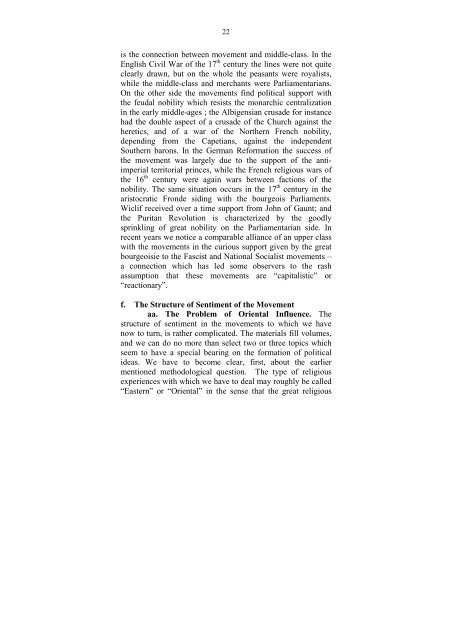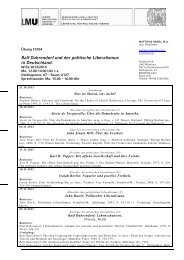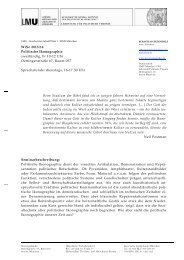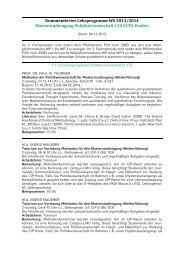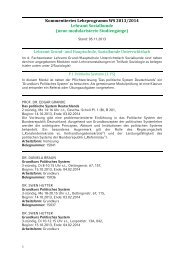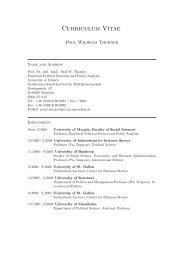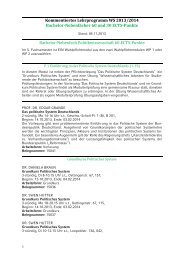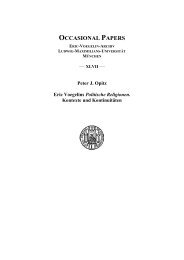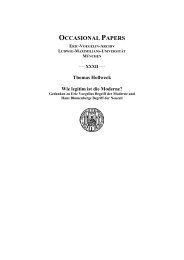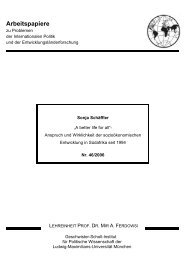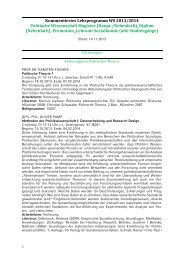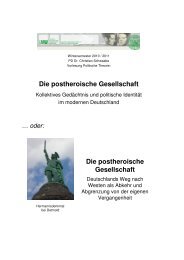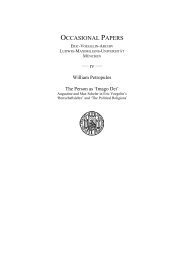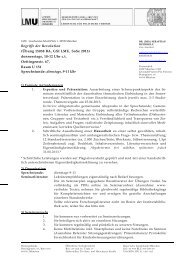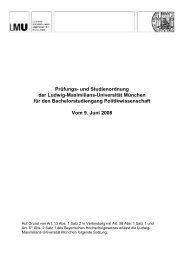Eric Voegelin The People of God - Geschwister-Scholl-Institut für ...
Eric Voegelin The People of God - Geschwister-Scholl-Institut für ...
Eric Voegelin The People of God - Geschwister-Scholl-Institut für ...
Create successful ePaper yourself
Turn your PDF publications into a flip-book with our unique Google optimized e-Paper software.
22<br />
is the connection between movement and middle-class. In the<br />
English Civil War <strong>of</strong> the 17 th century the lines were not quite<br />
clearly drawn, but on the whole the peasants were royalists,<br />
while the middle-class and merchants were Parliamentarians.<br />
On the other side the movements find political support with<br />
the feudal nobility which resists the monarchic centralization<br />
in the early middle-ages ; the Albigensian crusade for instance<br />
had the double aspect <strong>of</strong> a crusade <strong>of</strong> the Church against the<br />
heretics, and <strong>of</strong> a war <strong>of</strong> the Northern French nobility,<br />
depending from the Capetians, against the independent<br />
Southern barons. In the German Reformation the success <strong>of</strong><br />
the movement was largely due to the support <strong>of</strong> the antiimperial<br />
territorial princes, while the French religious wars <strong>of</strong><br />
the 16 th century were again wars between factions <strong>of</strong> the<br />
nobility. <strong>The</strong> same situation occurs in the 17 th century in the<br />
aristocratic Fronde siding with the bourgeois Parliaments.<br />
Wiclif received over a time support from John <strong>of</strong> Gaunt; and<br />
the Puritan Revolution is characterized by the goodly<br />
sprinkling <strong>of</strong> great nobility on the Parliamentarian side. In<br />
recent years we notice a comparable alliance <strong>of</strong> an upper class<br />
with the movements in the curious support given by the great<br />
bourgeoisie to the Fascist and National Socialist movements –<br />
a connection which has led some observers to the rash<br />
assumption that these movements are “capitalistic” or<br />
“reactionary”.<br />
f. <strong>The</strong> Structure <strong>of</strong> Sentiment <strong>of</strong> the Movement<br />
aa. <strong>The</strong> Problem <strong>of</strong> Oriental Influence. <strong>The</strong><br />
structure <strong>of</strong> sentiment in the movements to which we have<br />
now to turn, is rather complicated. <strong>The</strong> materials fill volumes,<br />
and we can do no more than select two or three topics which<br />
seem to have a special bearing on the formation <strong>of</strong> political<br />
ideas. We have to become clear, first, about the earlier<br />
mentioned methodological question. <strong>The</strong> type <strong>of</strong> religious<br />
experiences with which we have to deal may roughly be called<br />
“Eastern” or “Oriental” in the sense that the great religious


